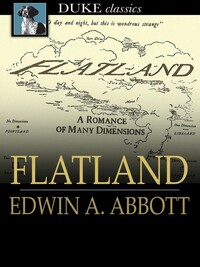You need to sign in or sign up before continuing.
Take a photo of a barcode or cover
lighthearted
reflective
fast-paced
Plot or Character Driven:
Plot
Strong character development:
No
Loveable characters:
Complicated
Diverse cast of characters:
No
Flaws of characters a main focus:
Complicated
adventurous
challenging
funny
informative
inspiring
fast-paced
adventurous
challenging
funny
informative
lighthearted
reflective
fast-paced
Plot or Character Driven:
Character
Strong character development:
Yes
Loveable characters:
Yes
Diverse cast of characters:
Yes
Flaws of characters a main focus:
Yes
adventurous
informative
reflective
slow-paced
Plot or Character Driven:
Plot
informative
inspiring
mysterious
reflective
fast-paced
Plot or Character Driven:
Plot
En un año en el que tengo la sensación de que nada me llena demasiado (lectoramente), o en el que más bien he tenido varias lecturas decepcionantes que lo eclipsan todo, este libro ha sido toda una sorpresa. Criterio de elección: corto, un título que me llamó muchísimo la atención y sobre todo una portada que me decía que lo de dentro *tenía* que ser bueno. Muy bueno.
Lectura inesperada pero me ha gustado muchísimo y me ha sorprendido un montón, quizás de las cosas más originales que he leído últimamente. De vez en cuando tenía que pararme a pensar en cuándo se escribió esta historia.
Me lo he pasado muy bien y se lee en nada. Recomiendo 100%
Lectura inesperada pero me ha gustado muchísimo y me ha sorprendido un montón, quizás de las cosas más originales que he leído últimamente. De vez en cuando tenía que pararme a pensar en cuándo se escribió esta historia.
Me lo he pasado muy bien y se lee en nada. Recomiendo 100%
adventurous
funny
lighthearted
reflective
fast-paced
Plot or Character Driven:
Plot
Strong character development:
Complicated
Loveable characters:
Yes
Diverse cast of characters:
Complicated
Flaws of characters a main focus:
Complicated
Its difficult to describe this book because it is actually a proof of three dimensional geometry. But it is a trip and I cant recommend it highly enough.
informative
reflective
fast-paced
Plot or Character Driven:
Plot
Strong character development:
Yes
Loveable characters:
Complicated
Diverse cast of characters:
Yes
Flaws of characters a main focus:
Complicated
adventurous
challenging
Plot or Character Driven:
A mix
Strong character development:
Yes
Loveable characters:
Complicated
Diverse cast of characters:
Complicated
Flaws of characters a main focus:
Complicated
On the surface, Flatland is a short, strange tale about a Square who lives in a two-dimensional world. He belongs to the Professional Class and spends the first half of the novella describing the rigid social structure of his society, where hierarchy is literally drawn in sides: the more sides one has, the higher one's status. Women are reduced to dangerous, voiceless lines who must emit warning cries as they move. At first, our narrator seems to accept all this without question, until he begins to dream. A vision of Lineland, a one-dimensional realm, is the first hint that not all realities are alike. Then, he is visited by a Sphere from Spaceland, a three-dimensional universe, and is forcibly pulled, both mentally and literally, into a higher dimension of understanding. Once returned to Flatland, he attempts to share his newfound wisdom, only to be met with silence, imprisonment, and societal rejection.
What makes Flatland memorable isn't its plot, which unfolds with the dryness of a geometry primer, but rather its ambition. Abbott uses the geometry of dimensions as both a narrative device and a metaphor for the human tendency to cling to the familiar and punish those who see beyond it. The book deftly moves from satire to speculative philosophy, never quite abandoning its humor even as it grows increasingly despairing. A. Square muses, "For why should the thirst for knowledge be aroused, only to be disappointed and punished?", encapsulating` the cruelty of closed-minded societies and the tragic loneliness of enlightenment.
The satire of Victorian norms is unmistakable. From its absurdly hierarchical class structure to its deeply misogynistic views of women, Flatland holds up a warped mirror to the 19th-century values Abbott clearly found troubling. That said, modern readers may struggle with how little the book resists those norms in tone. Women are portrayed not just as oppressed but as physically inferior and cognitively lacking, which might feel less like critique and more like lazy cruelty unless one reads carefully and charitably. Still,"to be self-contented is to be vile and ignorant, and that to aspire is better than to be blindly and impotently happy"; Abbott's sympathies lie with the dreamers and dissidents, not the enforcers.
Stylistically, Abbott writes in the dry, instructional prose of a man educated in both theology and mathematics. This is not a book where characters banter or where scenes unfold with much dynamism. Instead, the narrative moves like a diagram being annotated: precise, deliberate, and occasionally ponderous. However, the clarity of the prose becomes a strength once Abbott begins to describe the conceptual leaps between dimensions. The experience of being shown a three-dimensional world when you have only ever known two is not just intellectually stimulating; it's nearly spiritual. That jolt of wonder elevates the second half of the book into something more than satire or allegory.
There's a great deal to admire in Flatland even if it doesn't always charm. It's thought-provoking and intellectually playful, asking readers to consider the limitations of their own perception and the societal forces that enforce those limits. The book's brevity works in its favor, allowing its clever conceits to land without overstaying their welcome. It is not a warm read, nor especially emotional... but it is one that lingers, particularly in its open-ended invitation to imagine higher dimensions of thought, society, and space itself.
Flatland succeeds more in its ideas than its characters or pacing. But for those willing to engage with its conceptual layers and accept its dated framing as part of its historical context, it offers a quietly radical meditation on curiosity, hierarchy, and the courage to see beyond one's own borders.
What makes Flatland memorable isn't its plot, which unfolds with the dryness of a geometry primer, but rather its ambition. Abbott uses the geometry of dimensions as both a narrative device and a metaphor for the human tendency to cling to the familiar and punish those who see beyond it. The book deftly moves from satire to speculative philosophy, never quite abandoning its humor even as it grows increasingly despairing. A. Square muses, "For why should the thirst for knowledge be aroused, only to be disappointed and punished?", encapsulating` the cruelty of closed-minded societies and the tragic loneliness of enlightenment.
The satire of Victorian norms is unmistakable. From its absurdly hierarchical class structure to its deeply misogynistic views of women, Flatland holds up a warped mirror to the 19th-century values Abbott clearly found troubling. That said, modern readers may struggle with how little the book resists those norms in tone. Women are portrayed not just as oppressed but as physically inferior and cognitively lacking, which might feel less like critique and more like lazy cruelty unless one reads carefully and charitably. Still,"to be self-contented is to be vile and ignorant, and that to aspire is better than to be blindly and impotently happy"; Abbott's sympathies lie with the dreamers and dissidents, not the enforcers.
Stylistically, Abbott writes in the dry, instructional prose of a man educated in both theology and mathematics. This is not a book where characters banter or where scenes unfold with much dynamism. Instead, the narrative moves like a diagram being annotated: precise, deliberate, and occasionally ponderous. However, the clarity of the prose becomes a strength once Abbott begins to describe the conceptual leaps between dimensions. The experience of being shown a three-dimensional world when you have only ever known two is not just intellectually stimulating; it's nearly spiritual. That jolt of wonder elevates the second half of the book into something more than satire or allegory.
There's a great deal to admire in Flatland even if it doesn't always charm. It's thought-provoking and intellectually playful, asking readers to consider the limitations of their own perception and the societal forces that enforce those limits. The book's brevity works in its favor, allowing its clever conceits to land without overstaying their welcome. It is not a warm read, nor especially emotional... but it is one that lingers, particularly in its open-ended invitation to imagine higher dimensions of thought, society, and space itself.
Flatland succeeds more in its ideas than its characters or pacing. But for those willing to engage with its conceptual layers and accept its dated framing as part of its historical context, it offers a quietly radical meditation on curiosity, hierarchy, and the courage to see beyond one's own borders.





